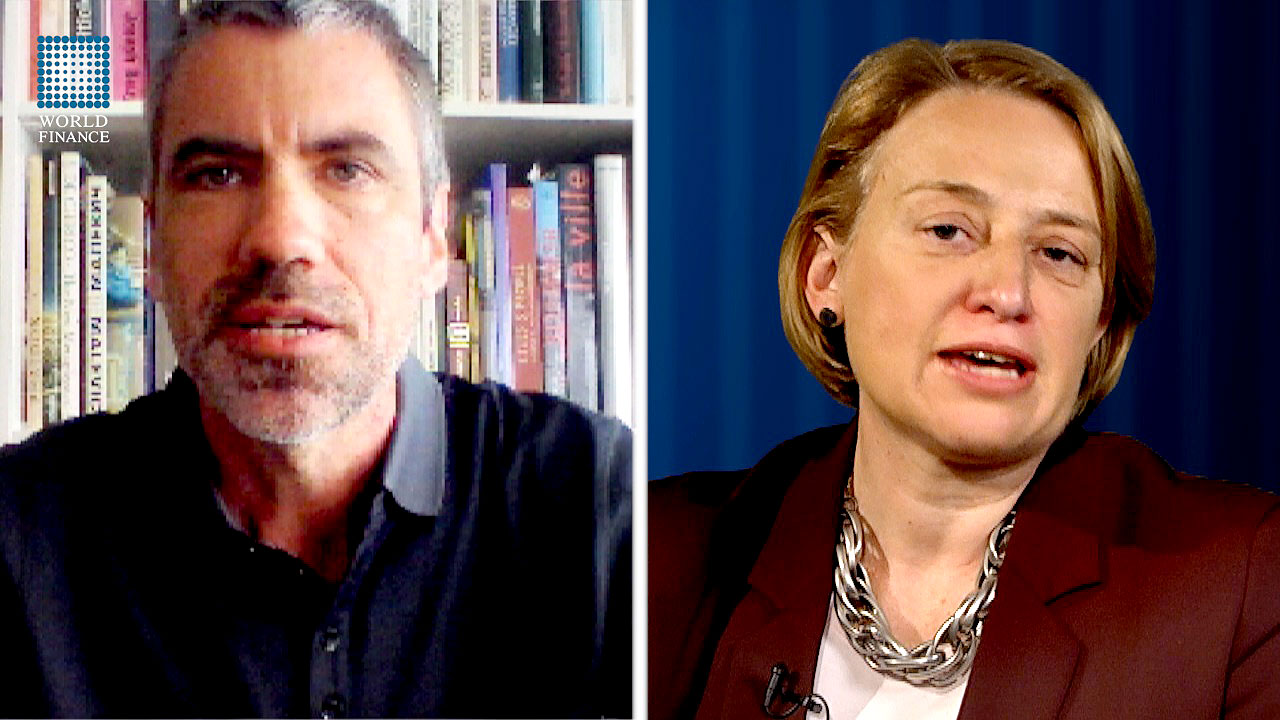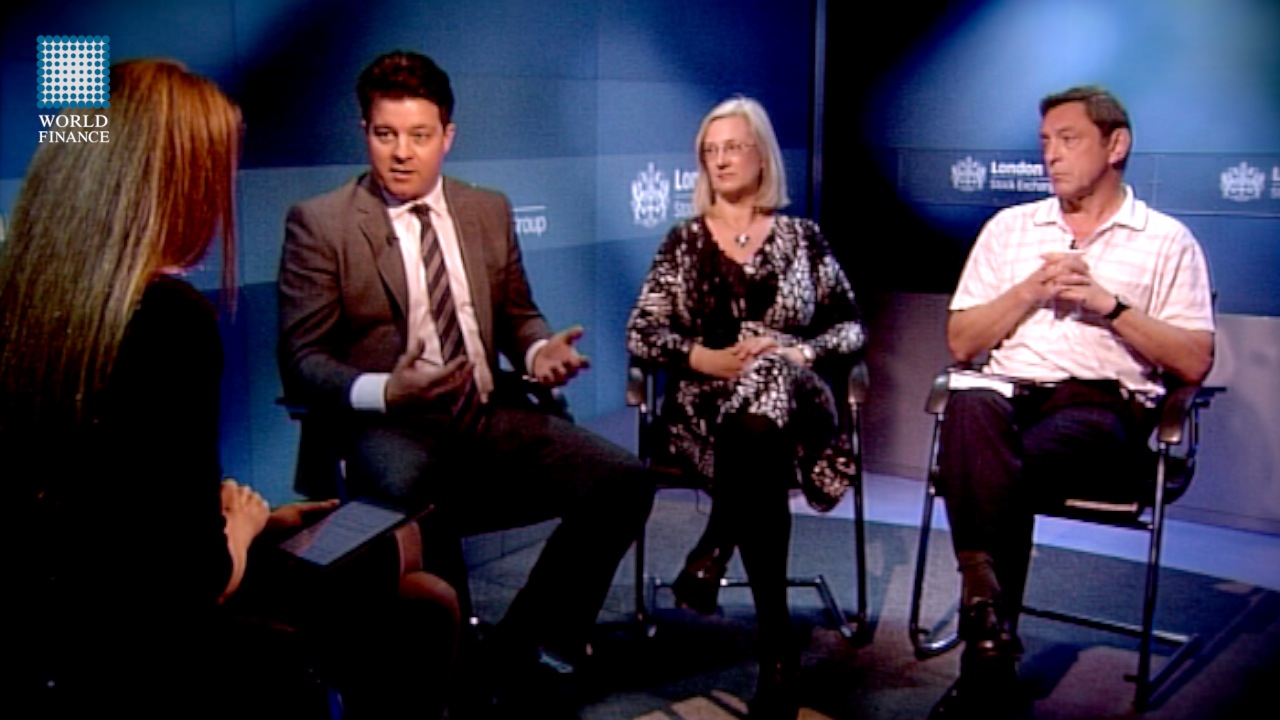Unconditional basic income ‘will be liberating for everyone’, says Barbara Jacobson | Video
World Finance interviews Barbara Jacobson, one of the organisers of the European Citizens' Initiative for an Unconditional Basic Income, about whether such a system is feasible for Europe
Related:
Transcript
World Finance is soon hosting a round table discussion on unconditional basic income. The debate will include economists, including Liam Halligan, and Guy Standing, proponent of basic income in Europe. To put forth a question to the panel, tweet @JournalistJenny
Unconditional basic income: the key to alleviating Europe’s alarming unemployment levels, or misdirected socialist macroeconomics? World Finance talks to Barbara Jacobson, one of the organisers of the European Citizens’ Initiative for an Unconditional Basic Income, about the implications of such a system for Europe: what it might mean for unskilled jobs, inflation, and the British economy.
World Finance: Well Barbara, a basic income paid to everyone. That’s the theory, but what exactly is this, and who will benefit?
Barbara Jacobson: Well we hope everyone will benefit from it, actually. The main concern is the people who are very poor at the moment in Europe, and the way the economies in Europe have been going down very quickly. We feel that basic income would support demand, and also be a fairer way of allocating money within the economy. The other thing it will do is simplify the benefits system dramatically.
World Finance: Well is this just the benefits system repackaged?
Barbara Jacobson: No, we hope it will be liberating for everyone. First of all, small businesses depend a lot on a lot of unpaid work, both by the entrepreneurs themselves, and usually their families and friends. Or with the ageing population, we need some kind of support system for people to be able to look after their relatives. It’s not that we’re against the services that are available, but many families would rather look after their elderly in their homes. And at the moment if they do that then they risk becoming very poor themselves.
World Finance: So how do you expect this to be funded?
Barbara Jacobson: The Citizens’ Income Trust reckons that it could pay a £10,000 income for everybody. There’s also an increasing divergence in the difference between tax on people who are earning versus tax on people who are on income that is unearned – so for example rents, share dividends, financial speculation tax, that sort of thing. Which would actually increase the amount of money significantly.
World Finance: Well critics might argue that this sounds frightfully socialist, if you like. And won’t this deter people from full-time employment?
We feel that basic income would support demand, and also be a fairer way of allocating money within the economy
Barbara Jacobson: The pilot studies around the world say no! There was a very interesting experiment in Canada called the Mincome done for about four years in the 1970s, which showed that actually the only people who really stopped working were young mothers of small children before school, teenagers who were trying to get into college and who were studying, and people who were close to the age of retirement anyway.
World Finance: Well do you think there could be a question of culture there? Because maybe in Canada people want to work more, whereas if you go somewhere else maybe they’ll be more work-shy?
Barbara Jacobson: What people have to understand about most means-tested benefit systems is that they are actually the cause of people being so-called ‘work-shy’. If you work on top of benefits – say if you’re in the tax credit system, or if you claim housing benefit in this country – the effective tax rate is 85 percent, which is a huge disincentive to work. If we had a citizens’ or a basic income, people would be able to keep the income that they get from that, they would be taxed on the income which they earn on top of that, and we just feel that would be a much fairer system.
World Finance: Well if this did come into practice, what would you think would happen in terms of people entering the country? Would they also be eligible for the same unconditional basic income?
Barbara Jacobson: What we’re saying is that anybody who is eligible for child benefit, so anyone who has the right to remain in this country. We also feel that if it were a European initiative, if it were Europe-wide, I think that would mean a lot of people wouldn’t have to move in order to feed their children.
World Finance: Well not to ask the awkward questions, but what do you think would happen to sort of, unskilled jobs then, that really rely on low wages? Because if they’re getting an unconditional basic income then perhaps they’d be less likely to do these sort of jobs?
Barbara Jacobson: Or they would be demanding higher wages! It’s a very strange thing at the moment, that work seems to be remunerated in inverse proportion to its social usefulness. Say for example, if all the nurses went on strike tomorrow there would be a disaster; if all the bankers went on strike, who would notice?
World Finance: Well assuming we do give everyone money, surely this will have severe inflation implications?
Barbara Jacobson: Well considering how indebted the economy is at the moment, I don’t think that’s too much of a problem. There would be a lot of people who would be paying down their debts with this, probably.
World Finance: In effect it’s really a fiscal stimulus; wouldn’t it be better to just invest in a policy that supports a long-term economic approach that creates jobs?
Barbara Jacobson: Well we feel this would create jobs, because people would be employing themselves. Or you know, they could pool their citizens’ or basic income to set up community projects or even business projects in their area.
World Finance: How do you think this will impact the British economy if it did come into practice, realistically?
Barbara Jacobson: The more money you give to poorer people, the more they actually proportionally spend into the economy. That’s what people seem to forget you know? Money seems to be trickling up as opposed to trickling down. In poorer areas, when people are spending money, that’s where the multiplier effect is. That’s where every pound spent actually creates another five or six pounds in that local economy.
What we would hope is that in very hard-pressed areas like the north, people would be able to stay there as opposed to coming down to London, and rebuild their own economies there.
World Finance: Barbara, thank you.
Barbara Jacobson: Thank you very much.

 Unconditional basic income: Green Party’s Natalie Bennett debates its merits with David Orrell | Video
Unconditional basic income: Green Party’s Natalie Bennett debates its merits with David Orrell | Video ‘Wrong-headed economics’: for and against unconditional basic income | Video
‘Wrong-headed economics’: for and against unconditional basic income | Video
